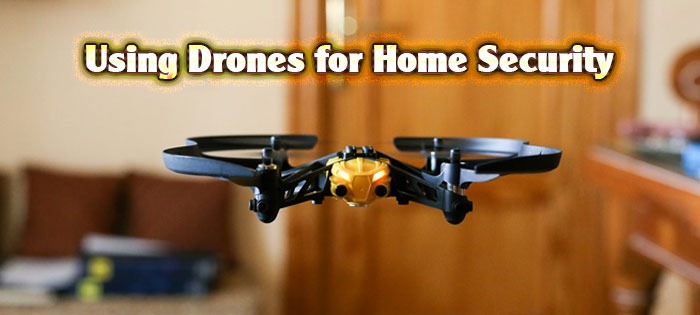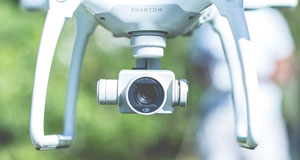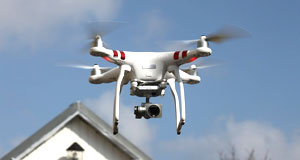Home security has been developed throughout the years by introducing different technology devices to detect an intrusion. These devices range from window and door sensors to motion detection sensors. One popular home security device is the smart home camera. Many homeowners are starting to install cameras inside and outside their homes. This helps them monitor what’s happening inside and around their households when they’re away or while fast asleep. These security cameras can only record a certain area depending on where they are located and focused. You may need to install a camera on every part of your house to capture all the angles, and that might be expensive or not easily done. And even if you have already installed a lot of cameras, there will still be a blind spot. Depending on your needs, especially if you have a large property, you might consider a drone with a camera.
Drones have a lot of advantages when it comes to home security compared to normal security cameras. Drones can keep an eye to the whole property since they can fly around, unlike cameras that are limited only to certain ranges. You can fly your drone quickly to where you want to check a potential disturbance and fly as high or low as needed. Another benefit is drones are less intrusive and don’t require physical installation like a camera. If you’re considering a drone for home security, you will want to consider ones that are nearly silent so they can’t be easily heard. A drone also isn’t easily sabotaged by a potential intruder like a stationary camera.
One example of a company that is developing a drone for home security is Sunflower Labs. They call it the Home Awareness System. The system they developed uses external sensors to monitor movements. These sensors are in the form of garden lights which look like ordinary lights. They detect unusual movements and send alerts to the owner’s phone. Aside from detecting unusual movements, they can also deter intruders by flashing light and sound. Once triggered, a drone will fly to the specific spot, record, and live stream it to the owner’s device.
Another company that is developing a drone for home security is Alarm.com. Their device records and monitors through sensors that are placed around the house. Its algorithm will learn the normal movements a certain household may have and then alert when there are unusual or unexpected events. It is not just for intruders but for detecting other home problems as well, like water leakage. When the sensors are triggered, mini-drones will fly around the area to record and feed a live video to the owner’s phone.
Like other devices, drones as home security have disadvantages as well. One of them is having a limited battery life. This means that a drone will not be able to provide surveillance 24/7 since its battery will not last long and it may take some time to charge as well. Another is its accuracy. Automating the drone to surveil something depends on motion detection. So you will need a system to detect motion and on top of the right motions and the right times to trigger the drone.
Also, many drones do not have night vision sensors which smart home cameras have. Because of this, they will not be able to surveillance without using any lights. Drones may also cost more compared to smart home cameras. For instance, Sunflower Lab’s drone costs $159 per Smart Light and $799 for the Flying Camera, while some Smart Home Security cameras may only cost around $70. Rules and regulations on the use of drones can also be an issue since the Federal Aviation Administration (FAA) requires the drones which weigh more than .55 pounds and less than 55 pounds might have to be registered to their site. There is a need to consult with the local regulations first before using drones for home security.
Despite these disadvantages, drones will be a growing part of the home security technology platform. Their flexibility and maneuverability bring a whole new set of options for monitoring your home security.


